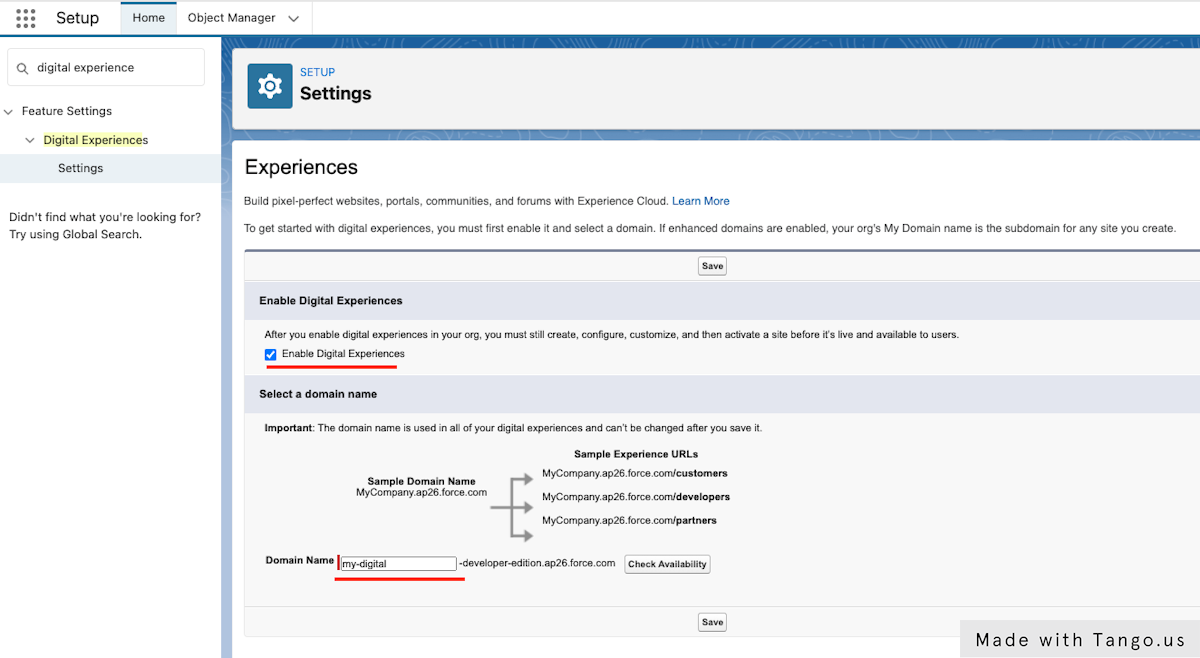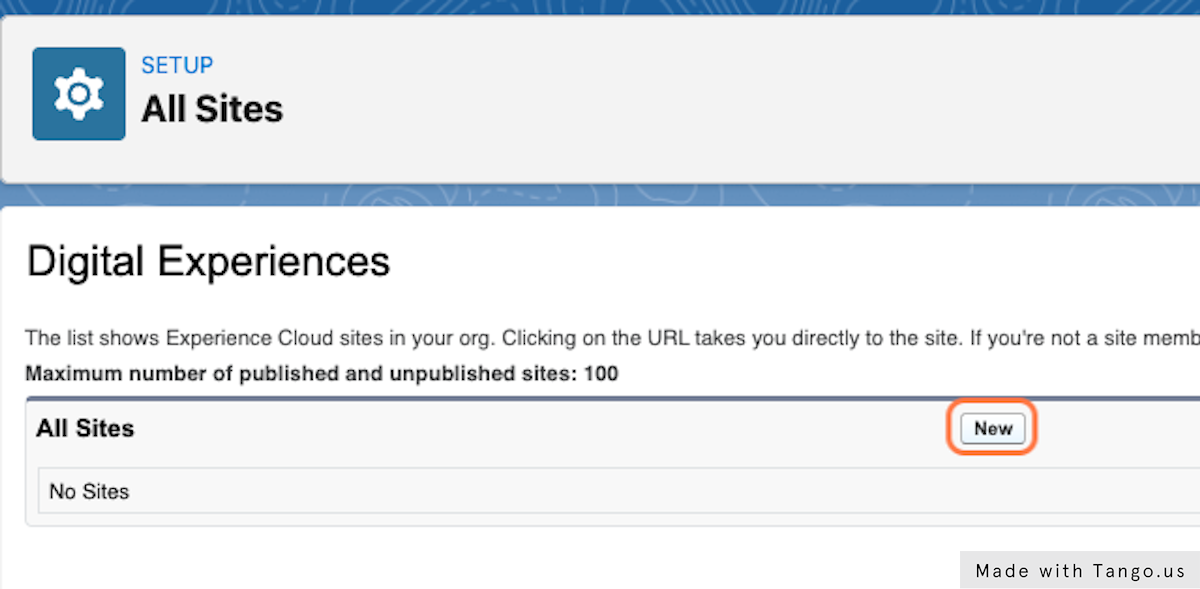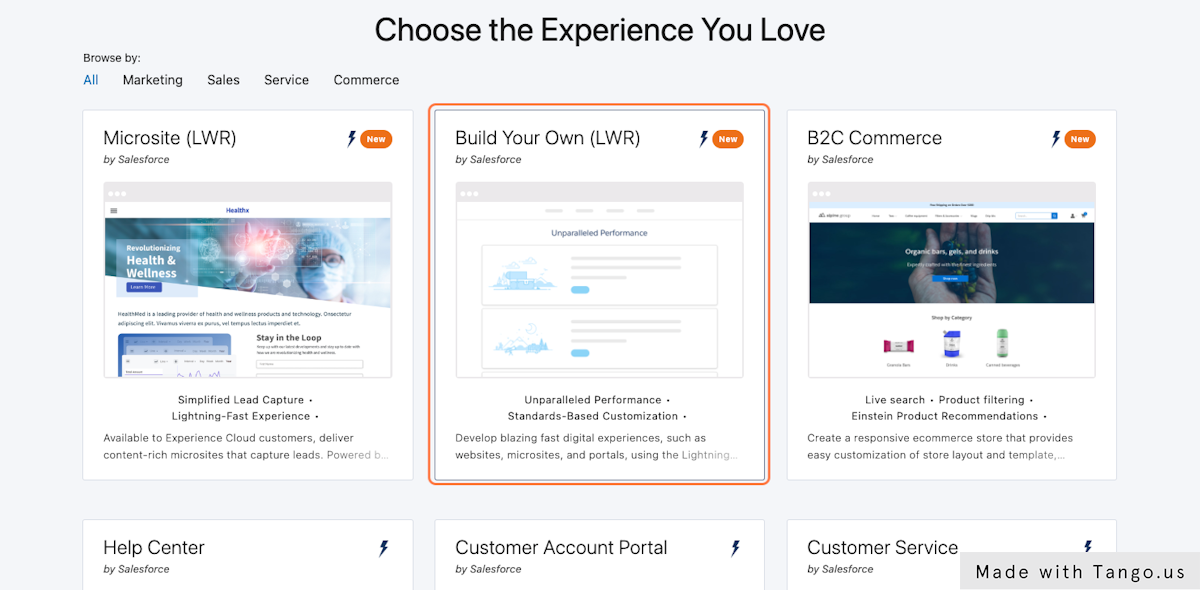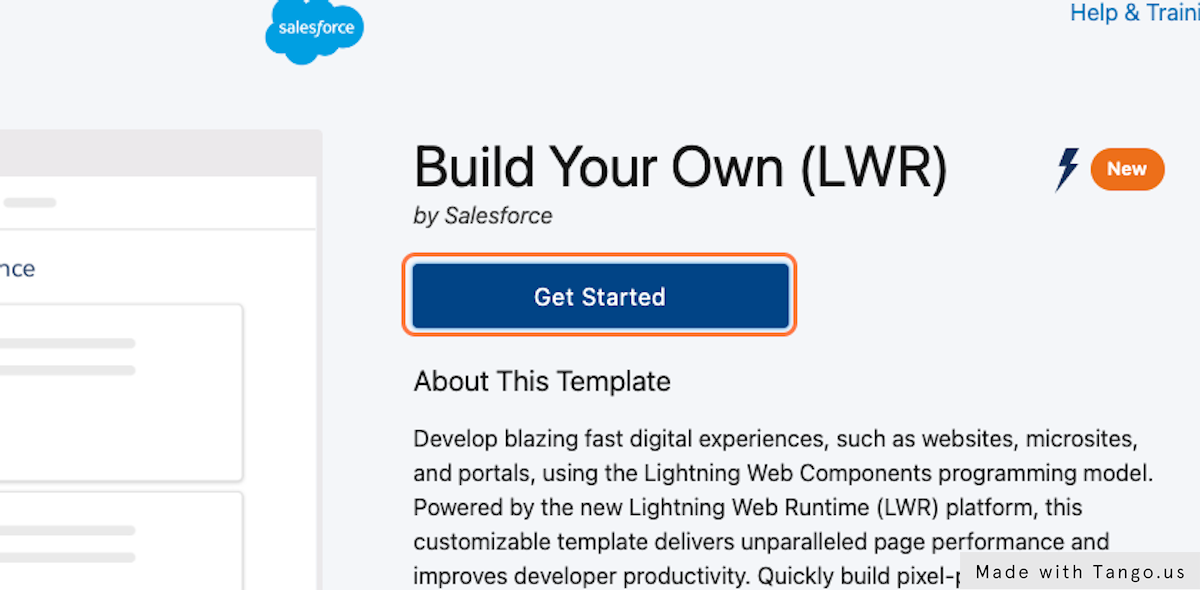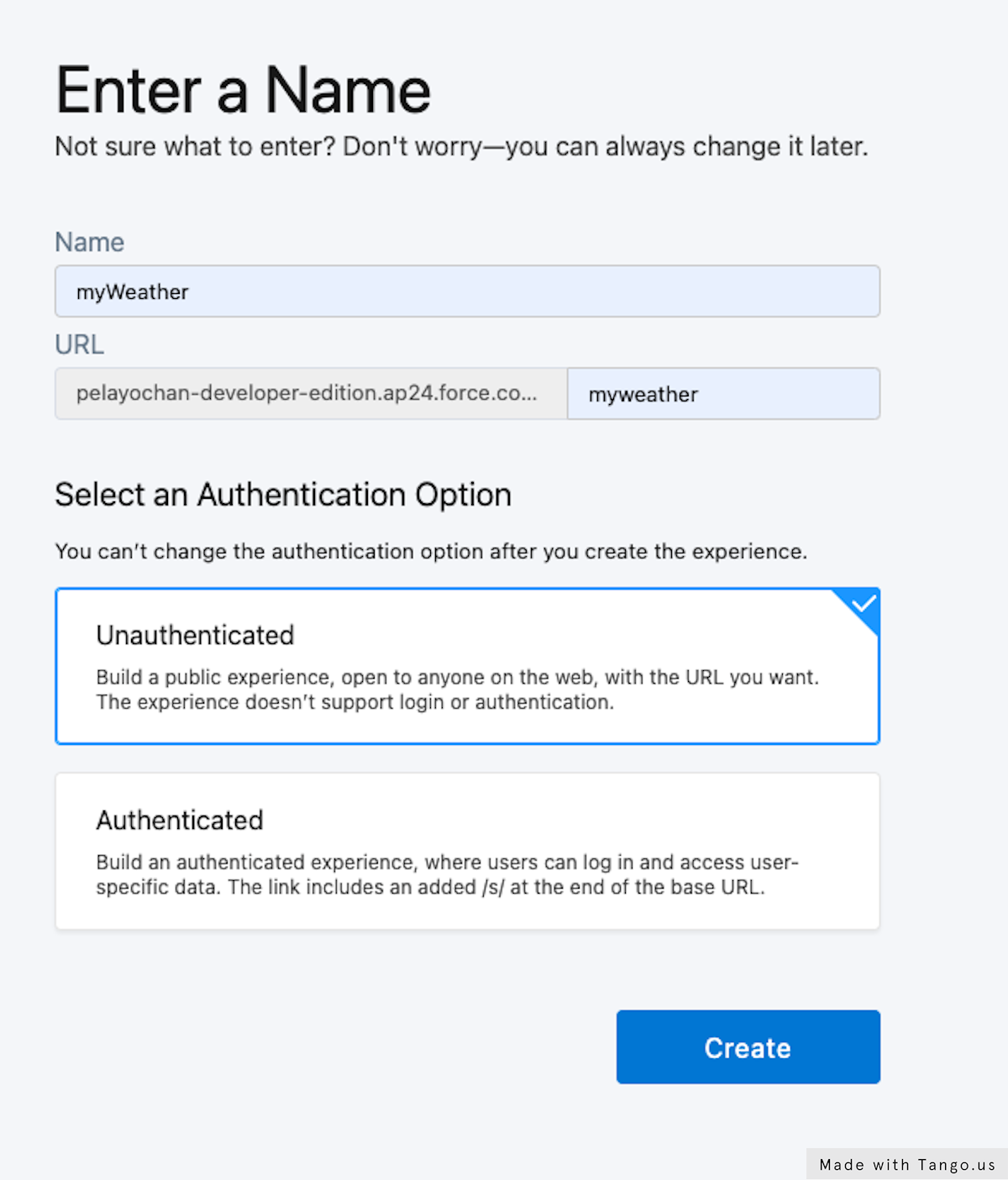Created as a side project, intends to learn integration in Salesforce Platform by building a Weather Dashboard app that consumes web-service from OpenWeather API. This app is built on top of the Salesforce Experience Cloud (Community Page) using LWR Template.
Tech Stack:
- LWC
- Apex
1. If your org is not Experience Bundle Enable, then go to setup and type in the quick box 'Digital Experience', checked the Enable Digital Experience and provide your prefer Domain Name.
- Clone the my-weather-app repository:
git clone https://github.com/pelayochristian/my-weather-app.git
cd my-weather-app
- Authorize the project in your dev org and provide it with and alias (mydevorg in the command below):
sfdx auth:web:login -d -a mydevorg
- Deploy the project by providing the authorize user from above (mydevorg):
sfdx force:source:deploy -p force-app -u mydevorg
API Key of the OpenWeather is stored in custom metadata that can be modify in the screenshot below:

On this method, named credentials is used to get the weather forecast from the OpenWeatherAPI.
private static final String OW_CURRENT_WEATHER_API = 'data/2.5/onecall?exclude=hourly,minutely,alerts';
private static final Integer DEFAULT_LATITUDE = 13;
private static final Integer DEFAULT_LONGITUDE = 122;
private static final String UNIT_METRIC = 'METRIC';
public static MW_OpenWeatherOneCall getWeatherForecast(Decimal longitude, Decimal latitude, String unitType) {
MW_OpenWeatherOneCall weatherForecast = null;
try {
longitude = longitude == null ? DEFAULT_LONGITUDE : longitude;
latitude = latitude == null ? DEFAULT_LATITUDE : latitude;
unitType = unitType == null ? UNIT_METRIC : unitType;
String endPoint = 'callout:Open_Weather_Service/'
+ OW_CURRENT_WEATHER_API + '&lat=' + latitude + '&lon='
+ longitude + '&units=' + unitType + '&appId='
+ MW_UtilHelper.getOpenWeatherAPIKey();
Http http = new Http();
HttpRequest httpRequest = new HttpRequest();
httpRequest.setEndpoint(endPoint);
httpRequest.setMethod('GET');
HttpResponse httpResponse = http.send(httpRequest);
if (httpResponse.getStatusCode() == 200) {
// Replace rain 1h attribute to oneHour
String responseBody = httpResponse.getBody()
.replace('1h', 'oneHour');
weatherForecast = MW_OpenWeatherOneCall.parse(responseBody);
}
} catch (Exception ex) {
System.debug(
'Error : MW_OpenWeatherOneCallService.getWeatherForecast() with message ' +
ex.getMessage()
);
}
return weatherForecast;
} For this error, make sure that the target org has a Experience Bundle Enable. Make sure to follow the pre-deployment steps for enabling the Experience Cloud.
For this error, make sure that the target org has a Experience Bundle Enable. Make sure to follow the pre-deployment steps for enabling the Experience Cloud.

